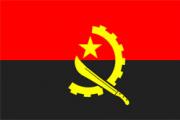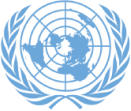Security Council
Briefing on the Lake Chad Basin Region
27 July 2016
Statement
Mr. President,
We thank Under Secretary-Generals for Political and Humanitarian Affairs, Mr. Jeffrey Feltman and Mr. Steveen O’Brien for their insightful briefings on the critical situation prevailing in the Lake Chad Basin, a region in the heart of Africa facing huge challenges threatening its very existence and the survival of millions of its inhabitants.
These challenges are of three distinct but of an interrelated nature: environmental degradation due to climate change and human actions; security threats, linked to poverty, unemployment, youth radicalization and terrorism; and a huge humanitarian crisis, in the backdrop of high rates of population growth, extreme poverty, food and nutrition crises.
The Lake Chad resources benefit around 20 million people living on its shores, in four countries. The Lake supports the peasant economy of local people, dedicated to fishing, agriculture and pastoralism, which see their sources of livelihood in peril and the Lake at the brink of ecological disaster, as it became a tiny fraction of its former size.
A set of factors such as shifting climate patterns, and human activities like the diversion of large quantities of water from the inflowing rivers, the irrigation for crop production and increasing population demand for water have strongly impacted on the decline of the Lake´s size.
Several initiatives at the national and regional levels have been undertaken aimed at managing the Lake´s shrinking water resources and at reversing the trend towards its extinction. These initiatives are a demonstration of deep concern by the people, governments and by the international community with the current state of affairs.
The Lake Chad Basin Development Authority, a Government of Nigeria initiative, put in place to deal with the development and management of water resources within the national territory, did not produce the expected results due to political and administrative bottlenecks; the Lake Chad Basin Commission, a regional initiative, established with the objectives of inter alia regulating and controlling the utilization of water and other natural resources in the Basin, while relatively active and with some achievements, did not deliver visible improvements in the Lake´s water replenishment.
The Lake Chad Basin Commission has developed the Lake Chad Replenishment Project, with the objective of regenerating the Lake through the annual transfer of 900 m3 of water from the Oubangui River by way of a navigable channel to the Lake Chad, aimed at reversing the land and water degradation and reviving the Lake´s ecosystem.
Being an ambitious project, it has the potential to change radically the current situation in the Basin and the lives of its populations. The countries of the region should assume their irrevocable responsibilities, strengthen political will as a means of mobilizing the international community, that should seriously consider extending tangible support to the project, since the current situation if not rapidly reversed has the potential to become yet another hotbed of crisis and conflict, and a real threat to regional and international peace and security.
The Lake Chad Basin is no longer able to provide for the livelihood of the people living on its shores, a situation that is triggering a threatening security situation and the current humanitarian crisis.
Mr. President,
The security situation prevailing in the Lake Chad Basin has continuously deteriorated in the last few years, in the backdrop of shrinking resources: poverty and joblessness create a pool for youth radicalization, violent extremism and willing recruits for the terrorists.
The Boko Haram seven year old insurgency that spread from Nigeria into Chad, Niger and Cameroon prompted the countries bordering the Lake Chad to join forces in the Multinational Joint Task Force, based in the understanding that a collaborative and cooperative regional approach would be most effective in ensuring the denial of safe havens to the terrorists while strengthening their military capacities to face and defeat Boko Haram.
The Multinational Task Force was endorsed by the African Union in January 2015 and the Security Council, while recognizing the threat posed by Boko Haran and condemning the deadly attacks perpetrated by this terrorist group, commended the Lake Chad Basin countries and Benin for their efforts to operationalize the Multinational Joint Task Force.
Despite progress in the fight against Boko Haram, the terrorists are still active in the Region, intensifying asymmetric attacks and continuing their rampage of terror, death and destruction. It is imperative the international community´s support to the Multinational Task Force (MNJTF) and to the countries of the region in consolidating the gains so far achieved in the fight against terrorism in the region.
Mr. President,
The recurring nature of food insecurity and poverty in the region requires a concerted effort to assist the most vulnerable, prevent severe hunger and malnutrition and ensure recovery to communities in distress.
Although the Governments of the region are deploying efforts, with the international community's support to address the humanitarian challenges, the sheer scale of the crisis, its complexity and potential for further deterioration call for a renewed sense of urgency.
According to the UN Office for the Coordination of Humanitarian Affairs the number of displaced people in the most affected areas has risen from 1.6 million to 2.4million while food insecurity and malnutrition has rapidly deteriorated; women and children represent the majority of the displaced, as Boko Haram attacks continue and military operations intensify.
Now, more than ever, the humanitarian community is called to protect and assist people displaced by conflict and the communities hosting them.
To conclude, Mr. President, it is crucial that the Lake Chad Basin Member States continue joining efforts in addressing the multiple challenges affecting the region.
Angola, as a member of the African Union will support regional and international efforts in rehabilitating the Lake Chad, and give new hope to extremely distressed populations, as well as support the fight against terrorism, defeat Boko Haram and provide assistance to the millions of people in desperate need.
I thank you


